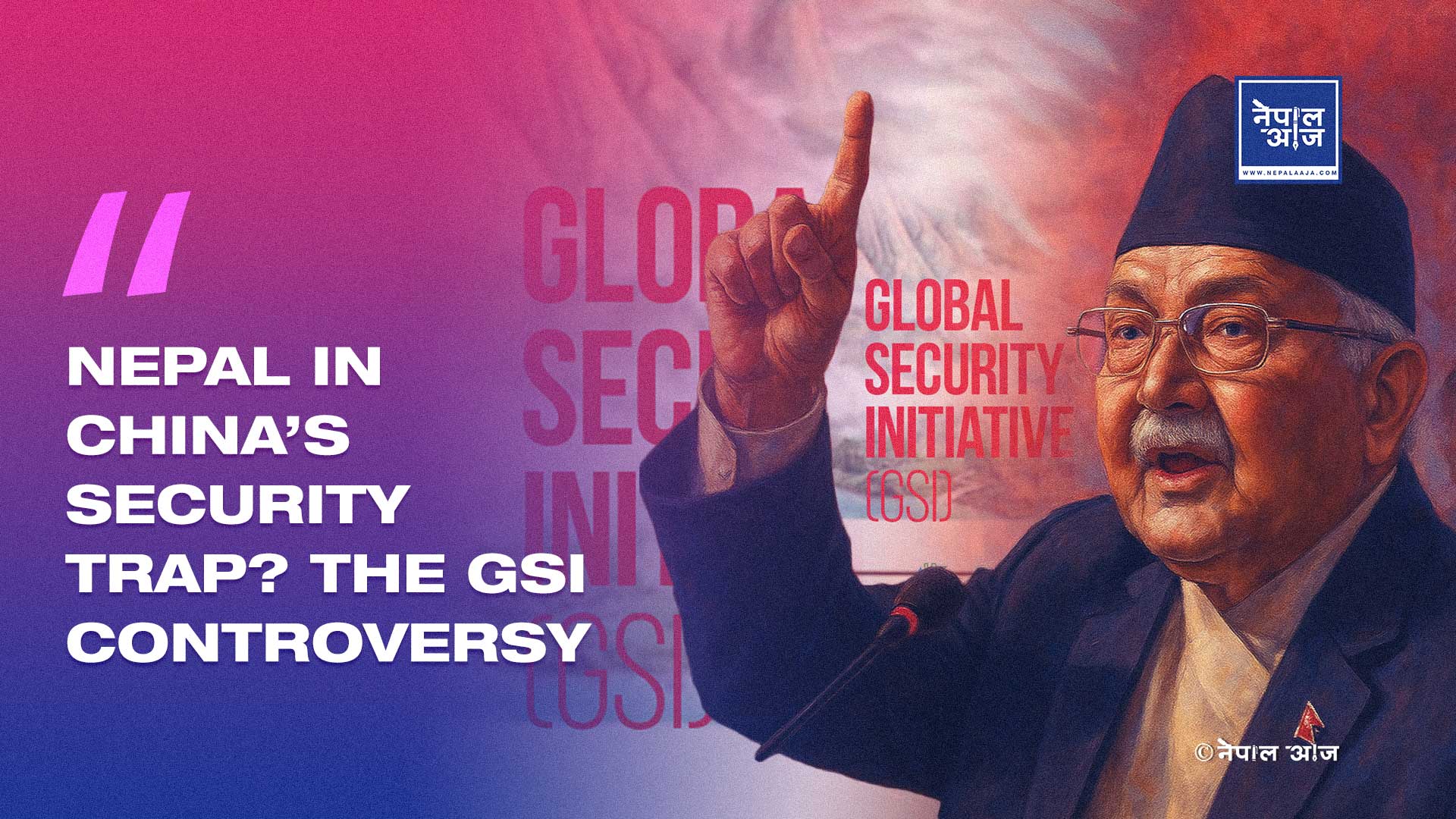The GSI Trap: Is Nepal Quietly Trading Its Sovereignty to China?

Kathmandu — A new political storm has erupted in Nepal after reports surfaced that former Prime Minister K.P. Sharma Oli may have advanced secret talks with Beijing to align Nepal with China’s Global Security Initiative (GSI) — a move analysts warn could place the country’s sovereignty and non-alignment policy in grave jeopardy.
According to political observers, GSI — presented by China as a framework for “collective security and stability” — is in reality a strategic military and information web designed to expand Beijing’s regional influence. Participation in GSI, experts say, could tie Nepal’s defense, intelligence, and cyber systems to China’s geopolitical agenda.
Critics argue that Oli’s government attempted to push the agreement quietly, without parliamentary debate or public disclosure. “This is not diplomacy — it’s a betrayal of national independence,” said one foreign policy expert, adding that such a deal would effectively make Nepal a subordinate partner in China’s strategic orbit.
The GSI Trap: A Threat to Nepal’s Autonomy
Analysts outline several potential dangers if Nepal joins the initiative:
-
Security control: Chinese influence could penetrate Nepal’s military and intelligence agencies under the guise of cooperation.
-
Cyber surveillance: Under “data-sharing” clauses, Beijing could gain access to sensitive national and citizen information, undermining privacy and state control.
-
Diplomatic collapse: The move would shatter Nepal’s long-standing Non-Alignment Policy, replacing balanced diplomacy with dependence on one power bloc.
-
Military risk: The agreement could open the door for foreign military presence and exercises inside Nepal, heightening tension with neighbors like India.
“This isn’t development — it’s a geopolitical cage,” said another analyst, warning that Nepal could lose its strategic neutrality in South Asia.
Gen-Z and Civil Society Sound the Alarm
The controversy has sparked outrage among the youth, who see the deal as a direct threat to Nepal’s independence. Gen-Z activists have launched an online campaign under the hashtag #StopGSI, demanding transparency and accountability from the government.
“Our sovereignty is not for sale,” said a youth leader. “If we stay silent now, tomorrow’s Nepal will not be free for our children.”
Diplomatic experts have urged the current government to clarify whether any formal or informal commitment to GSI exists. “If the agreement is not real, why has the government not officially denied it?” asked a former diplomat, calling for full disclosure in Parliament.
A Crisis of Trust
The alleged GSI connection has reignited debate over Nepal’s foreign policy direction — whether the country will uphold its non-aligned tradition or slide into strategic dependency on a global power.
Critics say Oli’s “opaque diplomacy” and the lack of parliamentary oversight represent a deeper crisis of governance.
The sentiment echoing through social media and civic spaces is clear:
“Secret deals kill sovereignty — Nepal needs accountability, not complacency.”





![From Kathmandu to the World: How Excel Students Are Winning Big [Admission Open]](https://www.nepalaaja.com/img/70194/medium/excel-college-info-eng-nep-2342.jpg)


